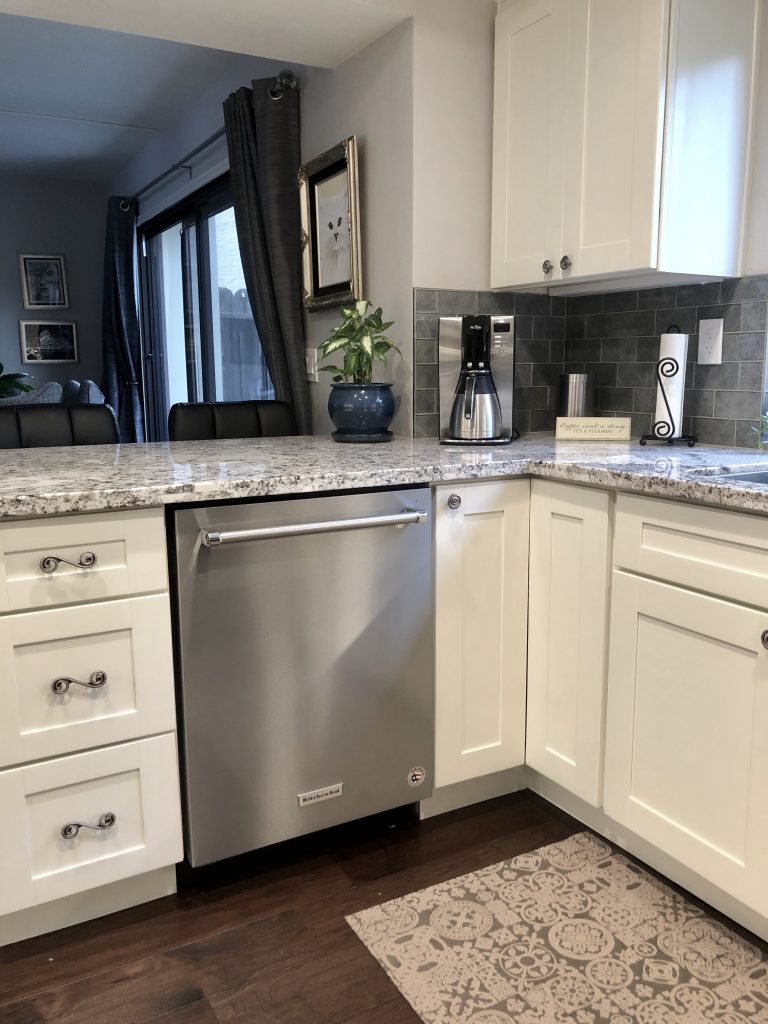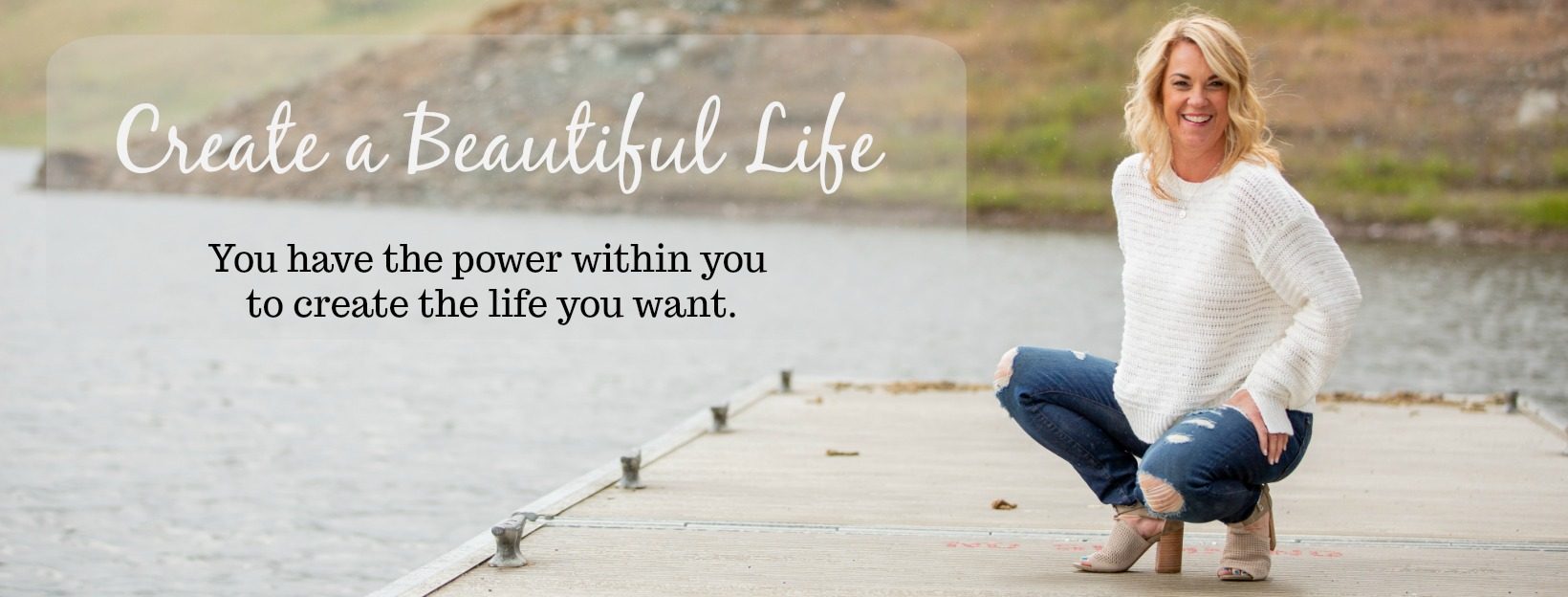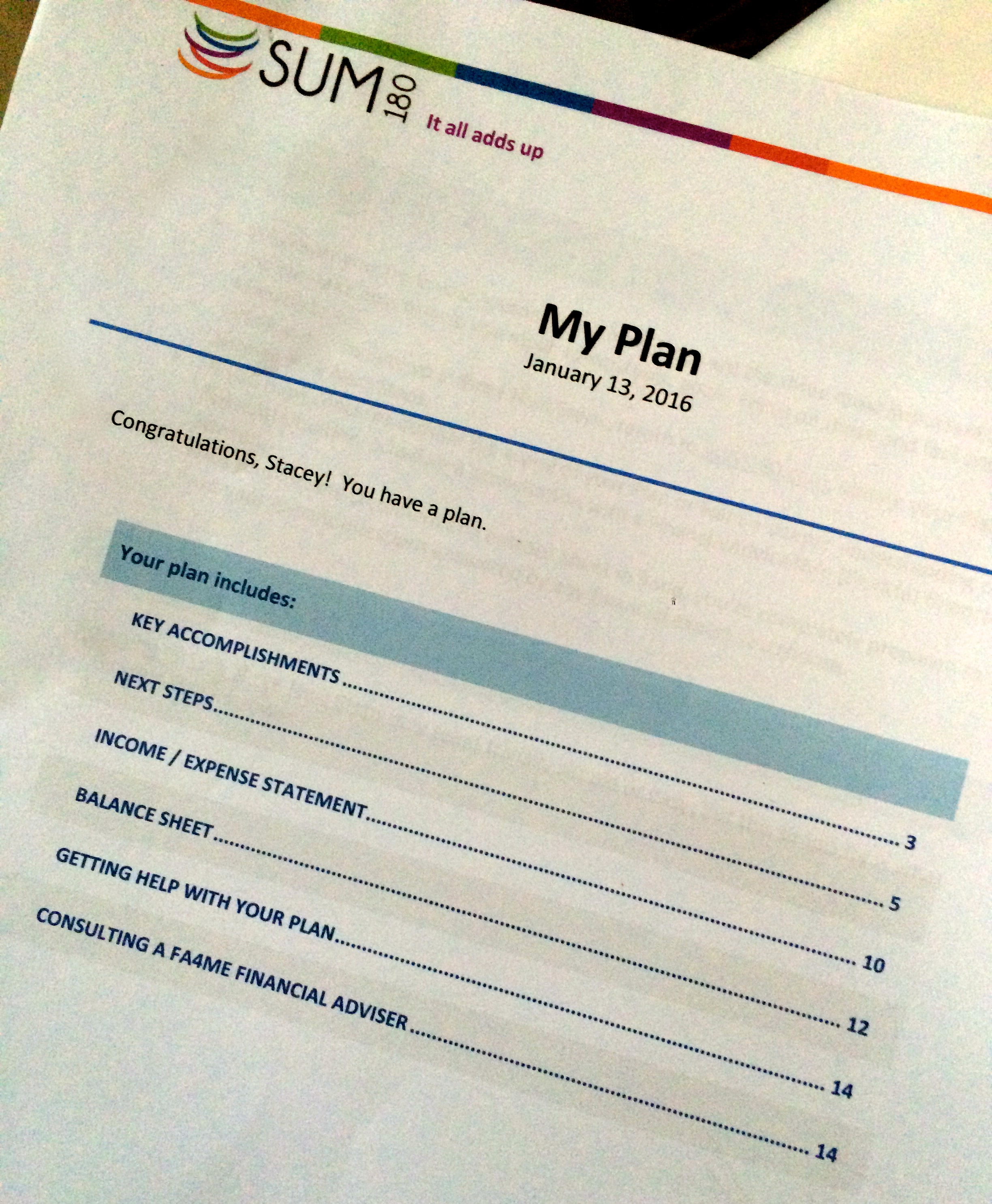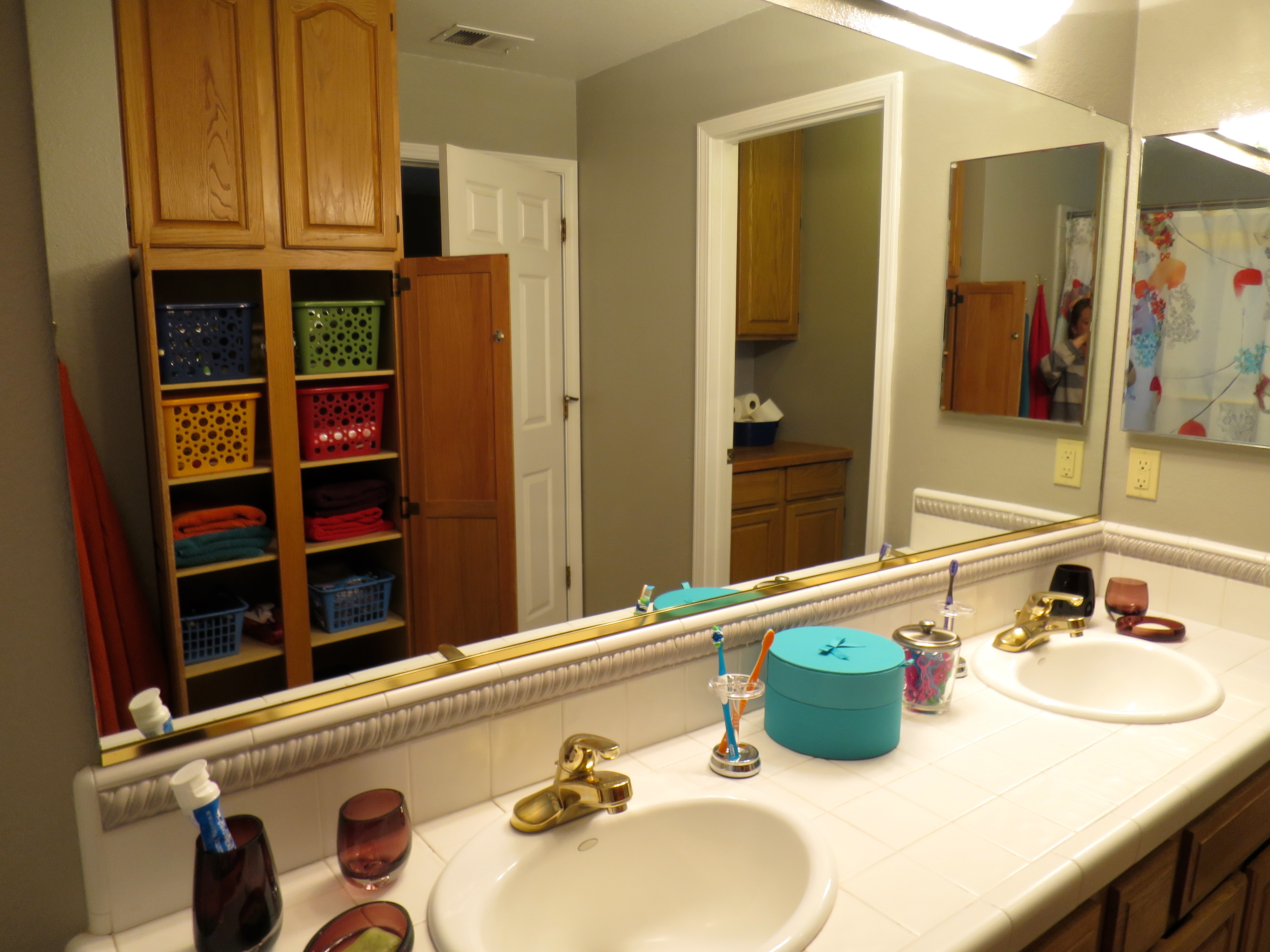I have come to realize that there’s more to minimalism than clearing away clutter and buying less stuff. I am focused on decluttering my home – mostly as a way to alleviate stress in my life and increase my overall health. Less clutter = less stress. Less stress = better health. Letting go is not always easy; the inner road to mastering minimalism is all about changing your mindset.
My life made a huge shift a dozen years ago with a divorce. With that divorce I had to learn to let go of a lot before I was able to move forward. Letting go of a marriage, the family unit as we had known it to that point, letting go of the dreams I had for the future, and letting go of a home that we shared and built together. There is a freedom that comes with letting go. Even when it is not easy.
Two years ago, my husband and I decided to downsize our home. When we married we blended together a family with six kids – five of them still in the home. A few short years later, all but one was out of the home – off to college, or college graduates building their own lives in their own homes. We decided that we no longer needed the large home and wanted something more suited for us. Again, I needed to learn to let go of a lot of stuff! When you downsize to half of the square footage – there simply is a lot that needs to go.

Through all of these life changes I have learned that the inner road to mastering minimalism starts with your thinking. Unless you change your thinking, you’ll find it difficult to downsize, and you may miss out on the major advantages of simple living.

Understanding why you overstuff your closets and your schedule will make changing your habits easier and more satisfying. Consider these three common obstacles and what you can do about them.
The Inner Road to Mastering Minimalism
Overcoming Materialism:
Happiness has more to do with experiences and relationships rather than possessions.
Shift your energy toward activities that have the most positive impact with these strategies:
1. Pause before buying. Do you order kitchen appliances online and then wonder why you thought you needed them? Give yourself a cooling off period to reduce impulse purchases.
2. Take vacations. Less than half of U.S. workers make full use of their vacation days. Plan a holiday around something you’ve been wanting to do but keep putting off. Even during a pandemic, you can take some time to get out and hike a local trail, enjoy a bike ride, or spend time via Zoom with family and friends.
3. Watch less TV. Studies show that screen time doesn’t contribute much to your wellbeing. Go play sports or work on your hobby.
4. Care about others. Spend more time with your family and friends. Eat family dinners and read to your children. Send letters to far away friends and family. Reconnect with your church.
Increasing Your Self Esteem:
Is your self-image based on what you own?
Build a more solid foundation for affirming your true worth with these techniques:
1. Resist comparisons. Cut back on social media and magazines if they make you pine for the expensive clothing and exotic vacations celebrities enjoy. Appreciate the pleasures in your life, like drinking your morning coffee or watching the sun set.
2. Practice self-care. Giving your mind and body what they really need may eliminate the urge for retail therapy. Eat a balanced diet, stay physically active, and get at least seven hours of sleep each night.
3. Advocate for yourself. Practice asking for what you want. Express your needs and feelings respectfully and directly.
4. Know your strengths. Take an inventory of your talents and skills. Look for ways to adapt your work methods to make the most of your abilities.
5. Add to your accomplishments. Take on challenging projects at work and in your leisure time. Develop your leadership skills by volunteering on the board of a local nonprofit. Learn how to grow your own organic vegetables.
Developing an Abundant Mindset:
With a scarcity mindset, you view the world as one pie where you have to compete to get a slice. Abundant thinking recognizes the ability to bake more pies, so you don’t have to worry about going hungry.
It’s an attitude that will help you to let go of things you cling to out of fear.
Keep these ideas in mind to build an abundant mindset:
1. Give more. Look for opportunities to share your time, money, kindness, and talents. Offer sincere compliments to your coworkers. Spend an afternoon helping an older neighbor weed their lawn.
2. Express gratitude. Cultivate a sense of appreciation. Let others know how their actions have made positive changes in your life. Keep a journal where you can write about the blessings you experience each day.
3. Change your vocabulary. Examine how you talk to yourself and others. Choose words that motivate you to put forth effort and persist until you see the results you’re aiming for.
4. Keep growing. Dedicate yourself to lifelong learning. Recognize that you have something to learn from each individual who you meet. Put your new knowledge into action so your performance becomes more efficient and effective.
Minimalism is an effective way to reduce stress, connect with others, and live a more meaningful life. While you’re cleaning out your garage and cancelling subscriptions, be sure to examine your priorities and think about your purpose.
Now, I am off to purge more closets!











